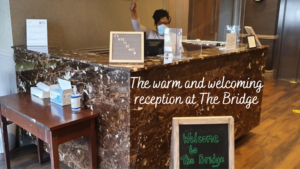
In 2021, Dame Carol Black’s groundbreaking independent review of drugs recognised that:
“the public provision we currently have for prevention, treatment and recovery is not fit for purpose, and urgently needs repair.”
Her report’s 32 recommendations set out an agenda for reform across all levels of national and local government and across many different departments. In particular the report recognised the need for other parts of the system to support people in recovery, with housing being central to this:
“In spite of the positive work being done to tackle rough sleeping, for other people in treatment and recovery we need clearer understanding of the level of housing need, and the gaps in housing-related services, so as to form a strategy to address them…. We recommend that MHCLG and DHSC work together to gain better understanding of the types and levels of housing-related need among people with a substance misuse problem, with early findings feeding into the next Spending Review.”
As part of the government’s response to Dame Black’s report Westminster City Council has secured a Housing Support Grant 2022-25 from the Office for Health Improvement and Disparities (OHID) to deliver a ‘test and learn’ programme which aims to increase the proportion of people recovering from drug and alcohol dependency who are in stable and secure housing.
The Westminster Homelessness Partnership (through Dom Williamson Consultants) is supporting the programme to map current services and joint working arrangement, analyse feedback on what works well and where gaps exist, identify ongoing changes in the system, and make recommendations for quick wins and further development work.
In April and May we engage partnerships across the borough, carried out stakeholder mapping, and consulting widely via an online survey and one-to-one interviews. We are now pleased to publish our report setting out our findings. These are summarised below:
What works in the current system
Westminster is a complex setting with large numbers of services, initiatives and developments. Existing websites already attempt to provide up-to-date mapping of services and multi-agency forums, so in this report we outline only the key ones relating to the programme.
We have identified significant areas of good practice, particularly around multi-agency working, the high regard professionals have for each other, drug treatment, and long-term consistency of support. Support works well for people at the sharp end of homelessness: sleeping rough and in hostel accommodation.
We also found arrangements that are working well but could be applied more widely, or where improvements to systems are underway but haven’t been fully embedded. This includes providing person-centred support that is appropriate for different client groups, peer support, and some mental health support. The need for better support to people in temporary accommodation, while presenting challenges, was seen as well understood and in progress. Challenging housing problems are seen in two categories: relating to the client and their needs, and relating to barriers created by housing services and providers. These will require different responses to resolve.
Areas seen as not working well include support for people with a dual diagnosis (also referred to as co-occurring mental health and substance use needs) and access to alcohol treatment. In terms of housing, professionals want more training on housing options, more preventative work with people at risk of housing problems, and more appropriate accommodation to be available. In particular, the lack of move-on from hostels/supported accommodation, debt, and “cuckooing” were seen as the biggest challenges.
Particular groups of people in treatment face additional barriers to achieving stable and secure housing. These include people from outside Westminster, those with particular histories (criminal offences and problematic past behaviour), those with dogs and people who have limited reading/writing skills.
Improvements planned
The key gaps identified in applying for this grant are support for: people placed in temporary accommodation out of the borough; more assertive support for people moving rapidly through settings on a treatment journey; more peer support; a service to enable social activities for isolated people with communication needs; and specialist housing advice located within treatment providers. It was also recognised that a strategic post would be needed to join up the various initiatives and developments taking place.
To meet these gaps, the programme in Westminster includes the following:
- Specialist floating support (for people in temporary accommodation out of the borough, for people needing a more assertive approach, peer support and a buddy scheme)
- Specialist housing support caseworkers (one dedicated to advice for treatment services, the other supporting people in temporary accommodation)
- Strategic posts (WHP time for baseline research, a post to oversee the work, and a part-time data coordinator)
- Training, personal development and workforce support (accredited substance misuse training)
- Personal budgets
- A weekend recovery social club and in-reach to housing settings.
In addition, there are a number of forthcoming changes and developments taking place across housing, health and treatment. These are all positive and contributory and we outline them in this report.
Recommendations
The analysis reveals that lots of the gaps/areas for development are already being addressed either through the programme or other developments. Of the remaining areas, most could be addressed (or could be made explicit) as quick wins by ensuring that focus is given to:
Floating support services targeting people who are moving rapidly through transition points in treatment
Floating support services intentionally seeking clients who may be at risk of housing problems, particularly those who live in private rented, privately owned or general needs social housing
The strategic post taking responsibility for working with partners to reduce barriers caused by the housing system and providers, develop options for better mental health support, and mapping where additional housing training is required.
The dedicated specialist case workers taking on responsibility for providing housing options training to partners.
One area – the need for a more assertive approach to engage people with alcohol treatment – does not appear to fit well with existing plans for the programme and will require further thought and development.
Progress towards delivery of the programme is moving at great speed, with operational teams in place or recruitment underway. To ensure it is able to deliver against its stated aims, further work would be useful to:
- Ensure the differing elements can work together effectively by clarifying the roles of new services and communicating expectations across services
- Co-create with funded providers a protocol setting out how people who could benefit from support will be identified and engaged by the most appropriate support offer
- Establish methods for continuous learning, performance metrics and a process for reporting on outcomes and learning to local partners and OHID.



